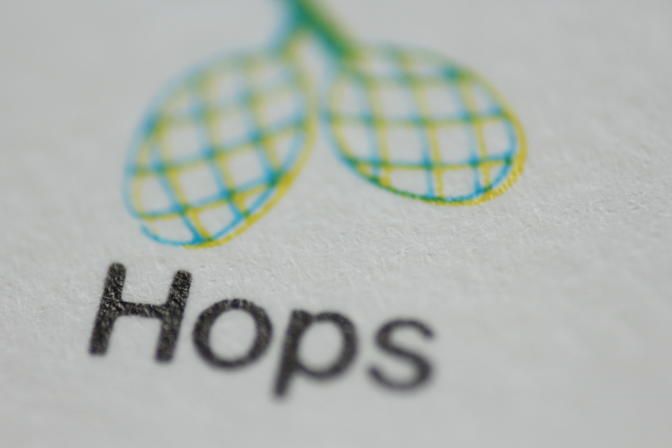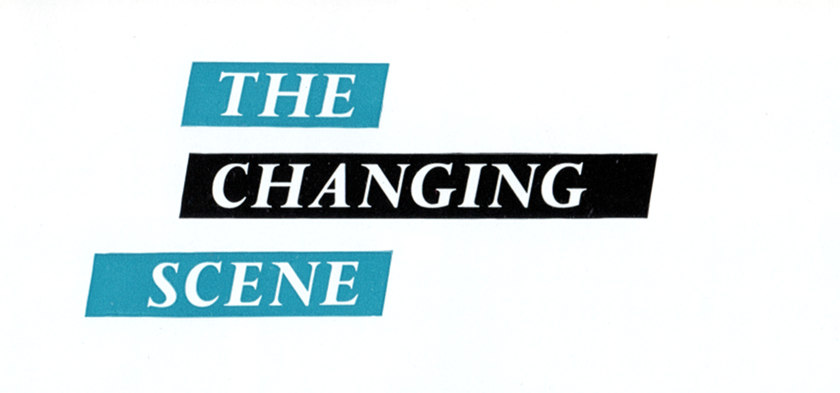Visit the Boak and Bailey's Beer Blog site
Here’s all the writing about beer and pubs from the past week we thought bookmarkworthy, including wartime ale and space-age hops.
First, some nuggets of news around the upcoming coronation of King Charles III:
 How did the British Army supply its troops with beer in the field during World War II? It had the enterprising Navy, Army, and Air Force Institutes (NAAFI) Breweries, as Gary Gillman explains in a series of posts on his blog this week:
How did the British Army supply its troops with beer in the field during World War II? It had the enterprising Navy, Army, and Air Force Institutes (NAAFI) Breweries, as Gary Gillman explains in a series of posts on his blog this week:
One instance occurred in Tripoli after the British 8th Army took control of the city in early 1943… We can start with a story in the Yorkshire Post and Leeds Intelligencer of March 19, 1945… “NAAFI seems to be particularly enterprising in Italy and North Africa. I have just been reading some description of the brewery established at Tripoli. This brewery was formerly used by the Afrika Korps. When the British organisation took over they found 60,000 gallons of beer already brewed and quantities of Czech barley and German hops. Malt was subsequently imported from America, and the brewery now supplies lager to Tripoli troops and exports pasteurised beer to Benghazi at the rate of 80.000 bottles a week. A sideline is the production of 400 blocks of ice a day for canteens in the Western Desert.”
 Remember our piece about ‘futures thinking’ in our March newsletter? Well, this is definitely a ‘signal’: a Spanish startup has begun growing hops hydroponically and, it claims, reducing their carbon footprint by doing so. Sam Jones wrote about it for The Guardian:
Remember our piece about ‘futures thinking’ in our March newsletter? Well, this is definitely a ‘signal’: a Spanish startup has begun growing hops hydroponically and, it claims, reducing their carbon footprint by doing so. Sam Jones wrote about it for The Guardian:
The hops [Ekonoke] is growing hydroponically in Alcobendas, and in nearby San Sebastián de los Reyes, are not only yielding as much as their outdoor peers – about 1kg (2.2lb) for each plant – they are also richer in the essential oils and alpha acids that give a beer its all-important bitter taste and aroma… What is more, Ekonoke’s methods – which remain a closely guarded secret – use 15 times less water than traditional outdoor growing and result in an overall carbon footprint that is 15 times smaller than field growth. And, because the hops are grown indoors under strictly controlled conditions, no pesticides are needed… Although Ekonoke started out experimenting with leafy greens and micro-herbs, it eventually realised that its niche lay in hops, more than 80% of which are grown in just two countries: the US and Germany.
 Jeff Alworth has also been thinking about signals, arguing that the innovation in American beer might, at present, be in business models rather than in the beer itself:
Jeff Alworth has also been thinking about signals, arguing that the innovation in American beer might, at present, be in business models rather than in the beer itself:
After an incredibly bubbly period in the beer industry, from pastry beers, IPA subtypes, N/A, hop waters, and seltzers/FMBs, and more, product innovation has finally stalled in the beer industry. It was bound to happen—too much choice dilutes the market. Since Covid started, we’ve had really no new styles, and ingredient and technique innovation has been more a process of refinement than invention. Honestly, a pause that allows a bit of re-focusing is probably a good thing… When volume growth and experimentation went explosive, no one had a reason to question business models, nor the time or creative bandwidth. But now that things are quieting down and shelves and taplists are more stable, it has created opportunities to tinker with those old models.
 SOURCE: Rowan Heuvel/Unsplash.On a related note, Courtney Iseman believes we might be reaching the end of an era when the US craft beer industry can rely on ‘passion’ to provide cheap employees who are easy to exploit:
SOURCE: Rowan Heuvel/Unsplash.On a related note, Courtney Iseman believes we might be reaching the end of an era when the US craft beer industry can rely on ‘passion’ to provide cheap employees who are easy to exploit:
Infinite Ingredient conducted a survey last year with 388 respondents in 42 states across backgrounds and roles – the breakdown of the former feels reflective of the industry, aka skewed toward white and male, and the latter skews most heavily toward brewer/cellarperson. 100 percent of responses indicated “a severe degree of burnout” across all three categories measured: occupational exhaustion, depersonalization/loss of empathy, and personal accomplishment… The results are broken down in a number of ways, but here are some that jump out at me: taproom staff showed the highest level of occupational exhaustion, and women showed higher levels than men. For depersonalization/loss of empathy, *owners showed the highest level.* That feels striking in a time when workers not being treated as humans, with safety, accessibility, opportunity, and equity, is one of the industry’s most urgent issues.
 SOURCE: Ian Beesley/Bradford Museums.Finally, a post that we think is a couple of years old, but which we only spotted this week after Leon Foster shared the link with us. During lockdown Bradford photographer Ian Beesley had the opportunity to sort through his archive and put together a piece for Bradford Museums on one specific pub, The Moulders Arms:
SOURCE: Ian Beesley/Bradford Museums.Finally, a post that we think is a couple of years old, but which we only spotted this week after Leon Foster shared the link with us. During lockdown Bradford photographer Ian Beesley had the opportunity to sort through his archive and put together a piece for Bradford Museums on one specific pub, The Moulders Arms:
Whilst the Moulders Arms was never the most attractive of pubs, it was the hub of a once thriving community. After the surrounding streets had been demolished and their occupants scattered to new developments around the city, many would return to the pub that was the centre of their social lives… The Moulders ran football team, darts and domino teams; it was the home to pigeonmen, allotment holders, the Sons of the Desert, the Buffaloes and a trade union, all who had a particular night for their meetings… But Friday was music night and anyone who could sing a song or play a tune was welcome. It was there in 1982 I made my debut as a pub piano player.
It’s a shame the photos are in such low resolution but, unfortunately, that’s about the only tool photographers have to stop people stealing their work.
Finally, from Twitter…
The word ‘mug’ came to mean ‘face’ in the 18th century when there was a fashion for fanciful drinking vessels shaped as grotesque human faces.
pic.twitter.com/4l2IEoPytf
— Quite Interesting (@qikipedia)
April 17, 2023
For more good reading check out Stan Hieronymus’s round-up from Monday and Alan McLeod’s from Thursday.
News, nuggets and longreads 22 April 2023: Eight Miles High originally posted at Boak & Bailey's Beer Blog
More...
How did the British Army supply its troops with beer in the field during World War II? It had the enterprising Navy, Army, and Air Force Institutes (NAAFI) Breweries, as Gary Gillman explains in a series of posts on his blog this week:
Remember our piece about ‘futures thinking’ in our March newsletter? Well, this is definitely a ‘signal’: a Spanish startup has begun growing hops hydroponically and, it claims, reducing their carbon footprint by doing so. Sam Jones wrote about it for The Guardian:
Jeff Alworth has also been thinking about signals, arguing that the innovation in American beer might, at present, be in business models rather than in the beer itself:
SOURCE: Rowan Heuvel/Unsplash.On a related note, Courtney Iseman believes we might be reaching the end of an era when the US craft beer industry can rely on ‘passion’ to provide cheap employees who are easy to exploit:
SOURCE: Ian Beesley/Bradford Museums.Finally, a post that we think is a couple of years old, but which we only spotted this week after Leon Foster shared the link with us. During lockdown Bradford photographer Ian Beesley had the opportunity to sort through his archive and put together a piece for Bradford Museums on one specific pub, The Moulders Arms:




 Reply With Quote
Reply With Quote